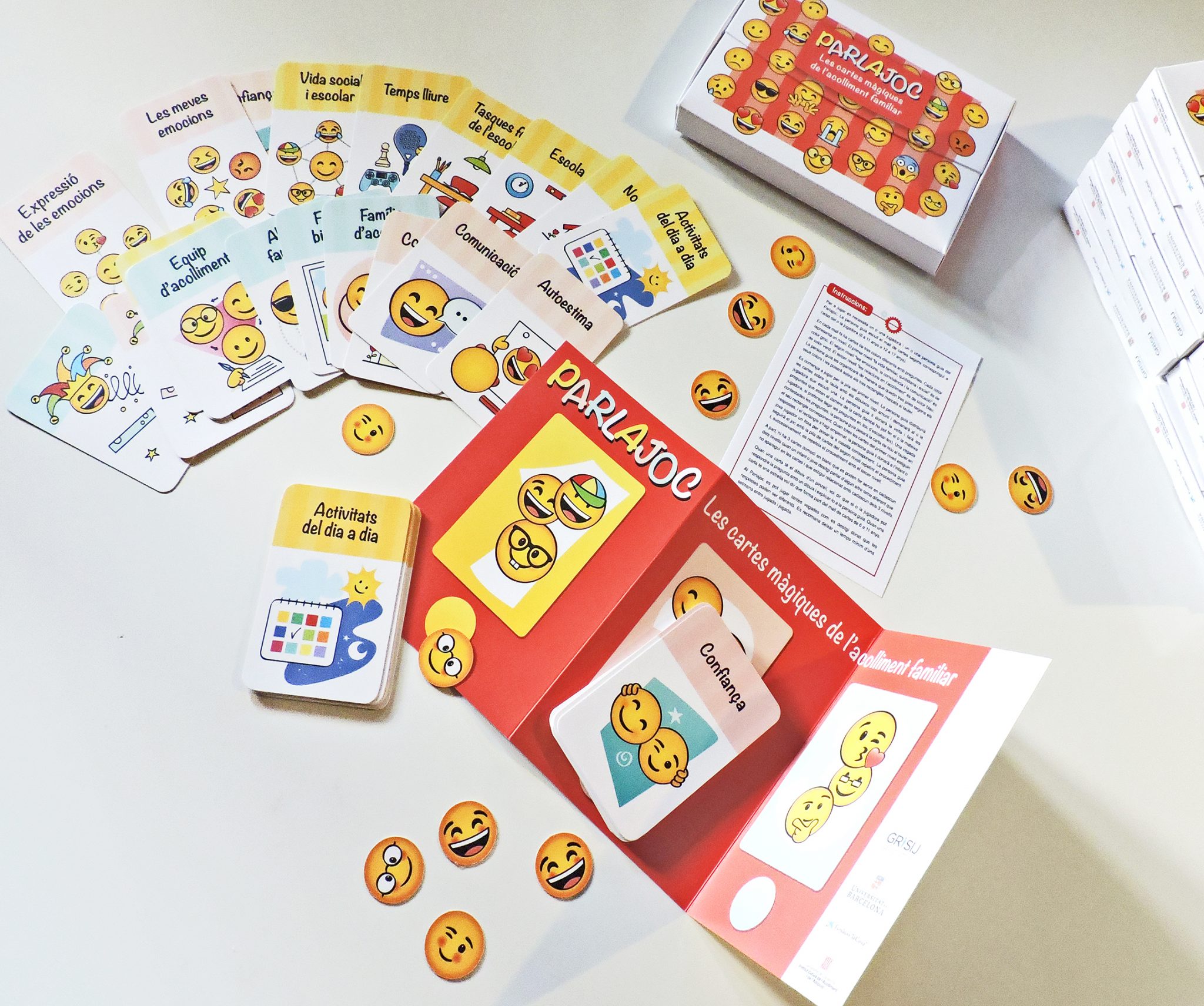Detail
Researchers at the Faculty of Education create a game to carry out gamified interviews with children in foster care
ParlaJoc. Les cartes màgiques de l’acolliment familiar (ParlaJoc. The magic cards of foster care) is a game created to gather information about children and teenagers who are under the care of the DGAIA (Directorate General of Child and Adolescent Care) and in foster care. Using a participatory and playful interview technique through gamification, professionals and researchers can talk to children in a safe environment about different areas of their lives related to the foster care process. This resource is meant for children and adolescents from 6 to 18 years old and has been designed by the Research Group on Socio-educational Interventions in Childhood and Youth (GRISIJ) of the Faculty of Education, led by Dr. Núria Fuentes and her team: Dr. Gemma Crous, Judit Rabassa and Carmelita Lapadula.
This pedagogical resource aims to provide guidance for conducting an interview through three blocks divided into groups of cards. The first one focuses on the day-to-day life of children and teenagers, their family, daily and social life, their routine, their relationship with their teachers and their leisure time, among other aspects. The second block is related to a more personal area, dealing with issues such as trust, emotion management, and interpersonal communication with the foster family. The third block is the most introspective and focuses on bonds and relationships with the biological family on the one hand and the foster family on the other.
“We must bear in mind that most children and adolescents in foster care are vulnerable and have complex backgrounds, in which there has been neglect and separation from their immediate family. We do not always ask the children how they feel or what their opinions are, and this is essential to improve their well-being and create safe and comfortable spaces for conversation,” notes Dr. Núria Fuentes.
Parlajoc is designed on the basis of a theoretical and scientific model called The Secure Base Model (Gilian Schofield and Mary Beek, 2014) and also on the perspective of Promoting resilience in fostered children (Gilligan, 2000) as well as on previous research by the GRISIJ research group. ParlaJoc was born within the framework of a research project carried out by the same research group in 2020 in collaboration with the ICAA (Catalan Institute for Foster Care and Adoption). It was also funded by the “La Caixa” Foundation.
In search of funding
The promoters of the game are currently seeking funding to produce more copies of ParlaJoc and make it available to social sector organizations and institutions working with children and adolescents in foster care. It is also at the service of researchers interested in including it in their research methodology. In the future, the group wants to digitalize this tool to make it even more accessible.
Source: FBG



